In pictures: Blue supermoon captured over the West Midlands
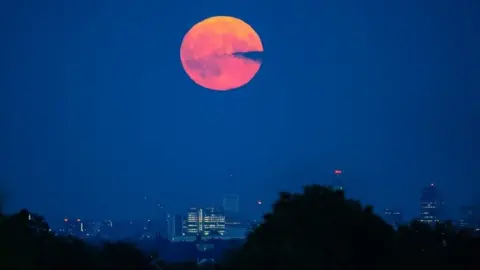 Ian Parkes
Ian ParkesPeople across the world have been captivated by a rare blue supermoon.
The blue Moon phenomenon occurs when the pattern of days means there are 13 full moons in a year, rather than the usual 12.
Wednesday night's appearance was also a supermoon, marking the satellite's closest point in its orbit of the Earth, making the Moon appear larger and brighter than normal.
Not wishing to miss the once in a blue (super) moon occurrence, BBC Weather Watchers across the West Midlands turned their cameras skywards.
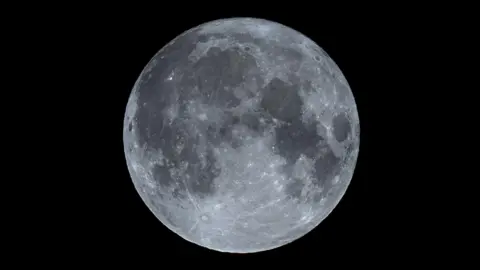 Rcolby
Rcolby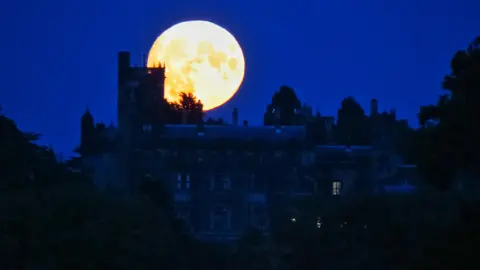 Jack March
Jack MarchDespite its name, a blue moon has nothing to do with its colour, but is called that because it does not fit into the usual pattern.
We typically have 12 full moons each year, with each of these having their own name, such as a Wolf Moon, Strawberry Moon, Buck Moon, Harvest Moon or Worm Moon.
The cycle of the Moon - the time it takes to go through its different phases - takes 29.5 days to complete.
This means that 12 full cycles take 354 days, which is fewer than the 365 days (or 366 days) in our calendar year.
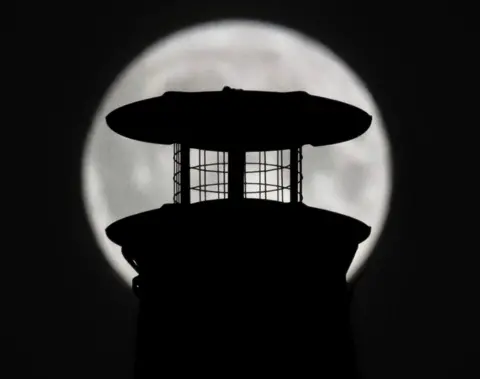 AirbusRed
AirbusRed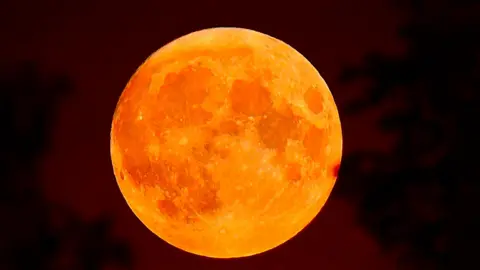 Grandad4
Grandad4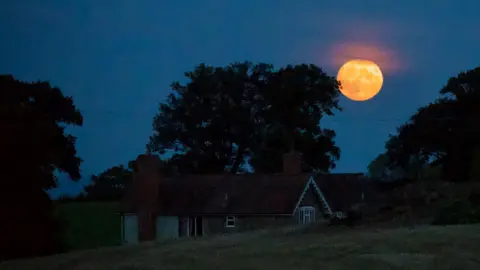 Ranger Jim
Ranger Jim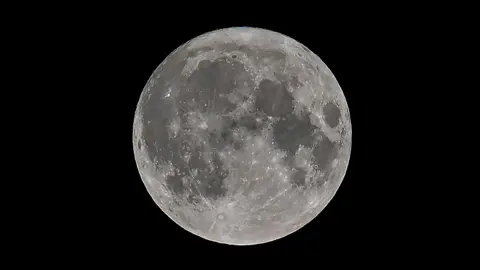 MochrumDunbar
MochrumDunbarBlue moons typically come around every two or three years while blue supermoons are even rarer and we will have to wait until 2037 to see the next one.

Follow BBC West Midlands on Facebook, Twitter and Instagram. Send your story ideas to: [email protected]
